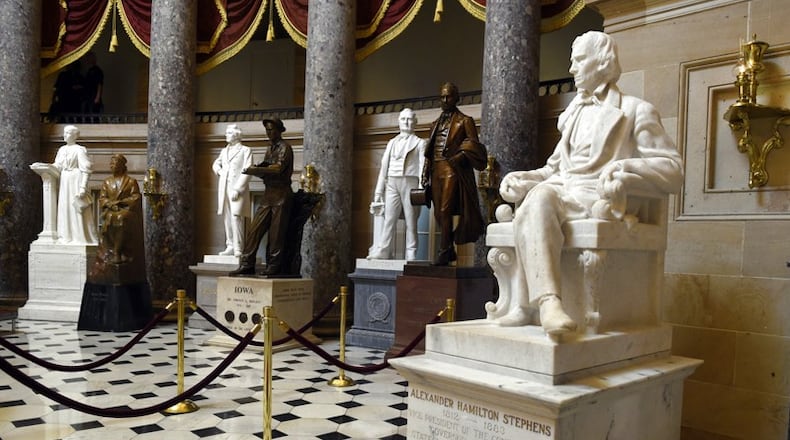Descendants of Alexander H. Stephens, the vice president of the Confederacy, want to remove the statue of Stephens from the U.S. Capitol’s Statuary Hall.
In an open letter to Gov. Nathan Deal and the Georgia General Assembly, brothers Alexander Stephens and Brendan Stephens wrote: “Confederate monuments need to come down. Put them in museums where people will learn about the context of their creation, but remove them from public spaces so that the descendants of enslaved people no longer walk beneath them at work and on campus.
” … Some of our relatives may disagree with our proposal, but they instilled values in us that made it possible for us to write these words: remove the statue of Alexander H. Stephens from the U.S. Capitol.”
They shared the letter with The Atlanta Journal-Constitution on Thursday.
“This is something that both of us have been thinking about deeply for the long time,” said Alexander Stephens, a 29-year-old doctoral student at the University of Michigan. “We both grew up with a deep appreciation of our family history. We independently had experiences that led us to a process of unlearning the history growing up. What we were learning didn’t fit with the stories that we learned when we were children. As we became more dedicated to unraveling this myth, we learned the reality.”
Stephens, a prominent Georgia politician, was a secessionist who was elected vice president of the Confederacy in 1861. In his famous “Cornerstone Speech,” he argued that the slavery was the “natural and normal condition” of black people.
Alexander Stephens, who is a great, great, great grand-nephew of his Confederate namesake, said that was the narrative that he and his brother were taught growing up. He said he and his brother are the most direct descendants of Alexander Stephens, who did not have children of his own.
“It is not as if we grew up idolizing the Confederacy, but it was state of cognitive dissonance,” Alexander Stephens said. “Slavery was wrong, but maybe some of the people who supported it were not so bad. We were taught to look away from it. It was a family tradition that was passed along.”
About the Author




